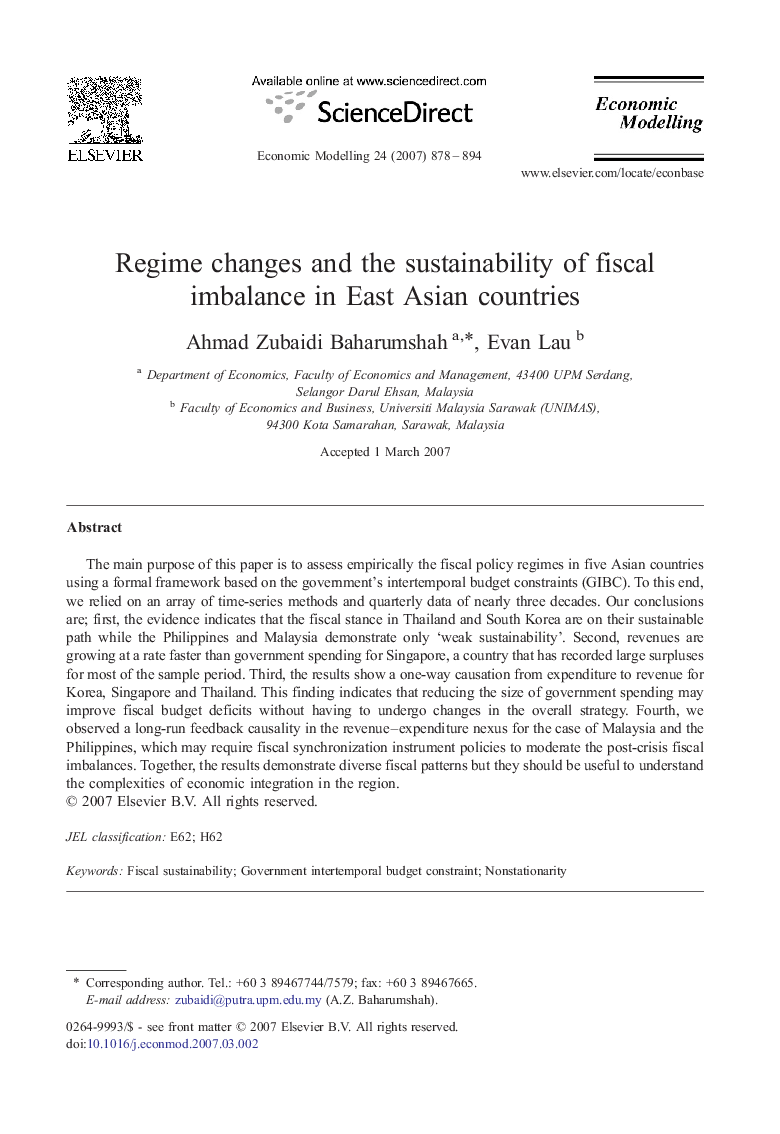| Article ID | Journal | Published Year | Pages | File Type |
|---|---|---|---|---|
| 5056094 | Economic Modelling | 2007 | 17 Pages |
Abstract
The main purpose of this paper is to assess empirically the fiscal policy regimes in five Asian countries using a formal framework based on the government's intertemporal budget constraints (GIBC). To this end, we relied on an array of time-series methods and quarterly data of nearly three decades. Our conclusions are; first, the evidence indicates that the fiscal stance in Thailand and South Korea are on their sustainable path while the Philippines and Malaysia demonstrate only 'weak sustainability'. Second, revenues are growing at a rate faster than government spending for Singapore, a country that has recorded large surpluses for most of the sample period. Third, the results show a one-way causation from expenditure to revenue for Korea, Singapore and Thailand. This finding indicates that reducing the size of government spending may improve fiscal budget deficits without having to undergo changes in the overall strategy. Fourth, we observed a long-run feedback causality in the revenue-expenditure nexus for the case of Malaysia and the Philippines, which may require fiscal synchronization instrument policies to moderate the post-crisis fiscal imbalances. Together, the results demonstrate diverse fiscal patterns but they should be useful to understand the complexities of economic integration in the region.
Related Topics
Social Sciences and Humanities
Economics, Econometrics and Finance
Economics and Econometrics
Authors
Ahmad Zubaidi Baharumshah, Evan Lau,
